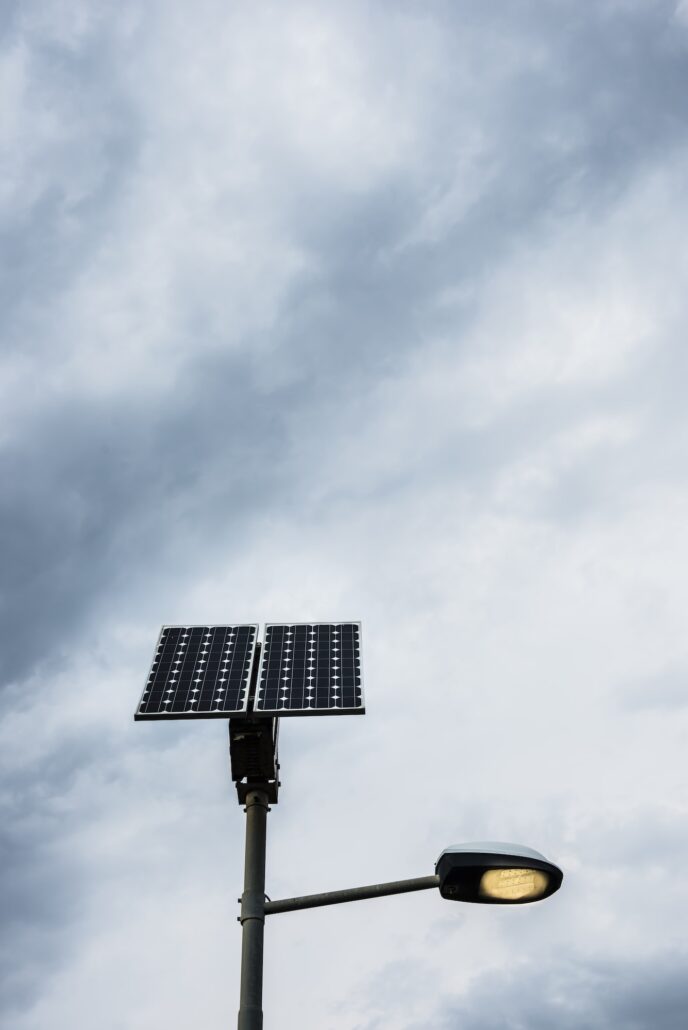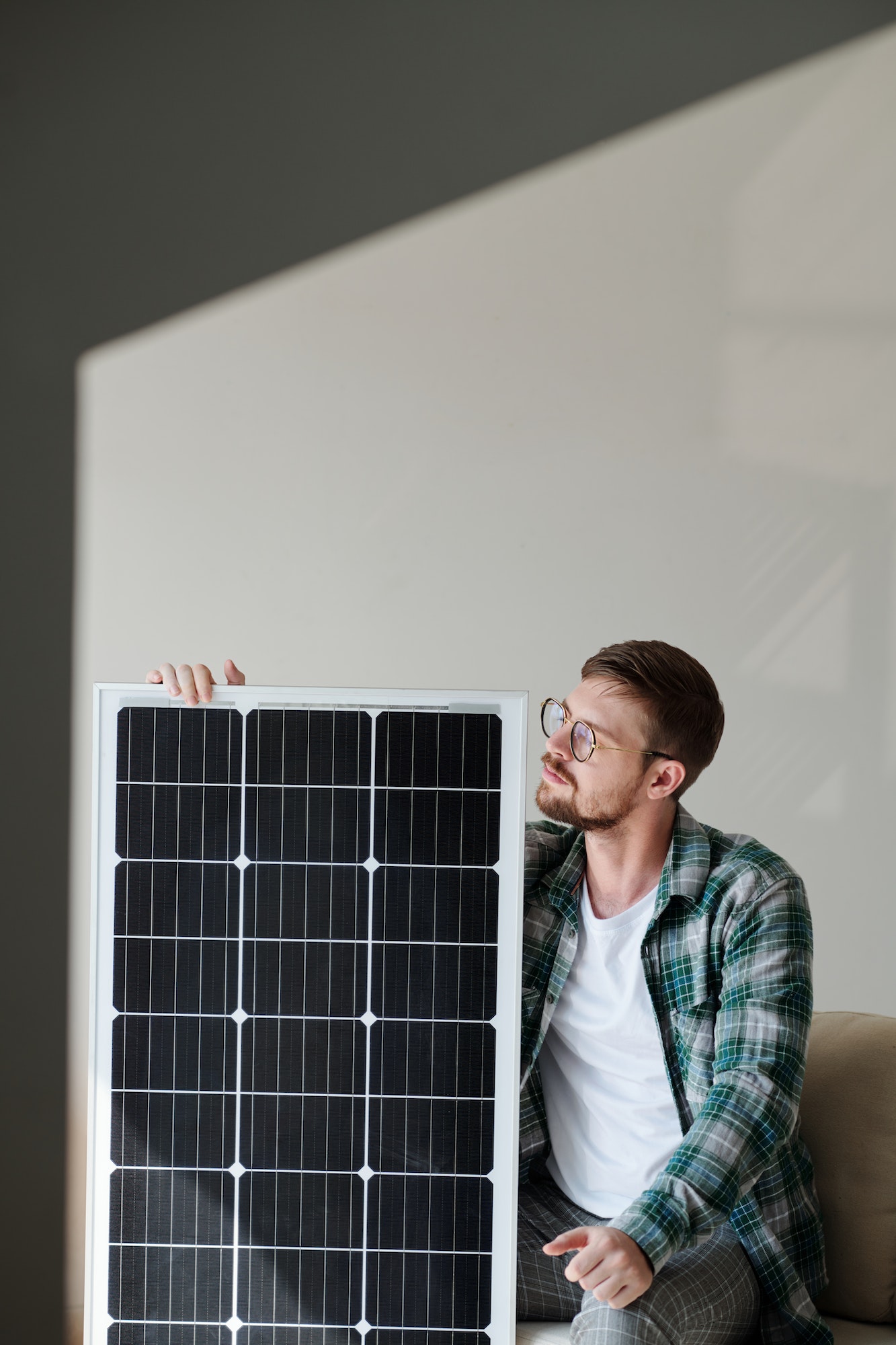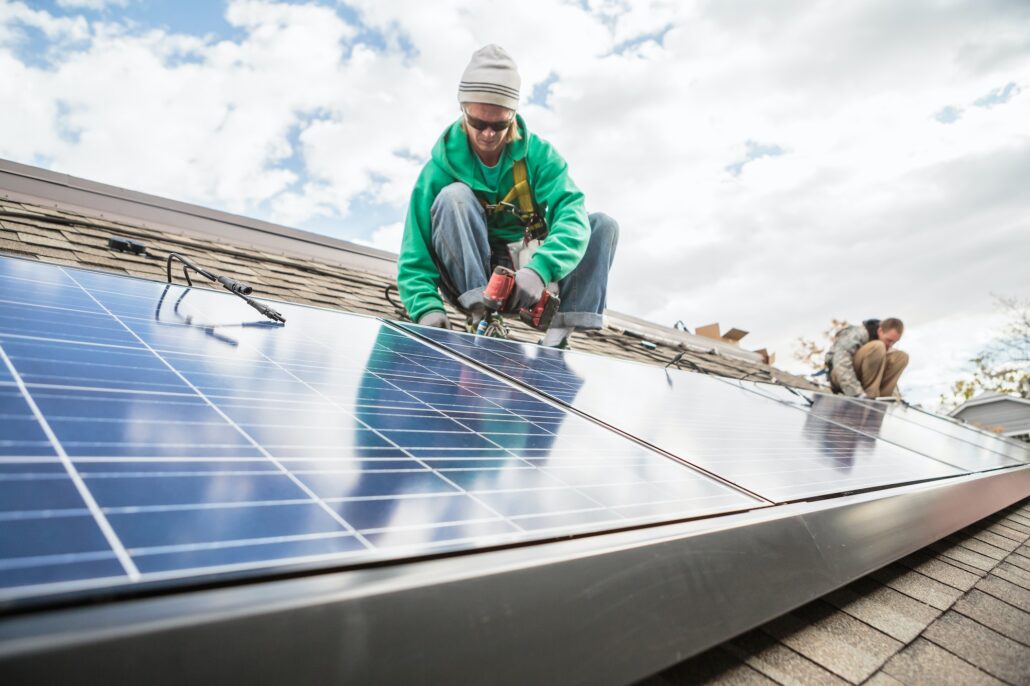
3. Solar Panels Do Not Work When It's Cloudy
The notion that solar panels do not work in cloudy or rainy weather is a misconception commonly perpetuated by solar skeptics. Unless the cloud cover is extremely dense, a certain amount of sunlight will still penetrate and be collected by your solar panels.
While it is true that solar panels are less productive in cloudy conditions, they are still likely to generate enough energy to get you through the day. Your stored energy should have you covered at night and throughout any period of low productivity.
It is also probable — distance from civilization notwithstanding — that you will be connected to a power grid, so even if your battery is out of juice, the grid will serve as your backup.


